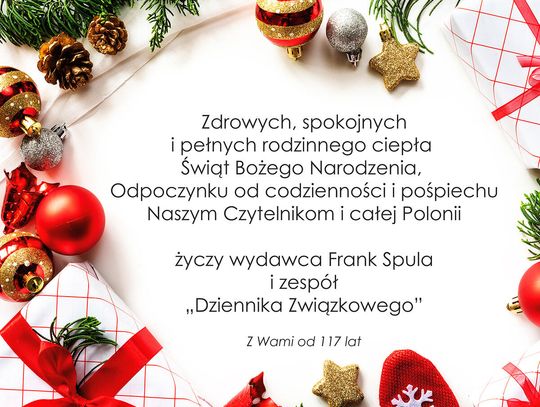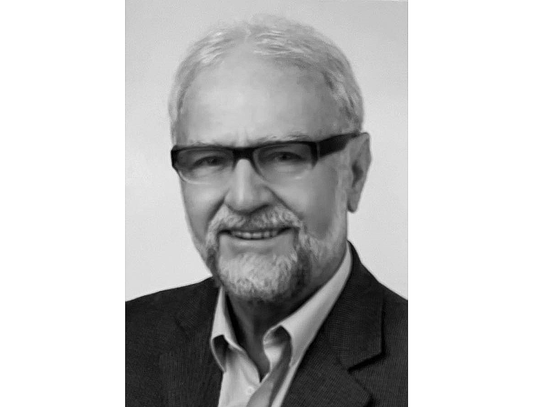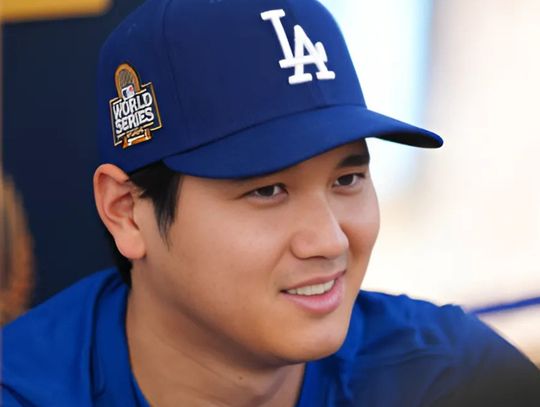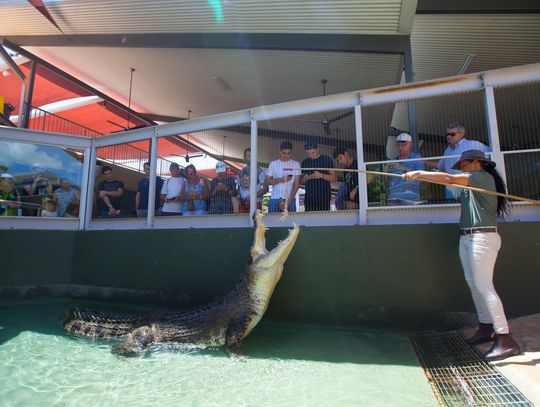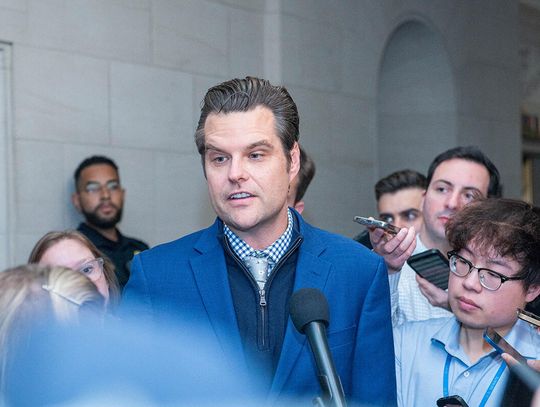Mam 72 lata, moja żona 68. Przez większość czasu nie czuję się stary. Właściwie to przez większość czasu czuję się całkiem dobrze. Ciągle mogę wejść po schodach, ciągle koszę trawnik, ciągle siedzę do późna oglądając filmy, ciągle kiedy czegoś potrzebuję, to idę na zakupy (tak długo, dopóki mam założoną maseczkę oczywiście).
Nie wiem, kiedy tak naprawdę poczuję się stary.
Przez ostatnie dwa tygodnie, 96-letni rodzice mojej żony byli u nas z wizytą. Znam tę uroczą, kochającą się parę od około 47 lat i nadal są prawie tymi samymi ludźmi, którymi byli, kiedy ich poznałem. Mama mojej żony jest jest zawsze miłą i ciepłą osobą, a tata lubi się śmiać.
Jest kilka rzeczy oczywiście, które stały się dla nich trudniejsze.
Ojciec mojej żony ma trudności w obsłudze pilota do telewizora. Mieszka w Connecticut i dostępny tam serwis telewizji kablowej różni się od tego, który mamy tutaj. Zna swojego własnego pilota do telewizora tak dobrze, jak swój portfel, ale nic nie wie o naszym pilocie. Dziś rano próbował włączyć telewizor w naszym pokoju rekreacyjnym i naciskał wszystkie przyciski na pilocie, ponieważ nie wiedział, jak się zmienia kanały w telewizji. Skończyło się tym, że zmajstrował coś w naszej kablówce, co uniemożliwiło oglądanie czegokolwiek. W całości zniknęło połączenie kablówki z telewizorem, nawet po tym, jak przez 5 godzin próbowałem to naprawić – ciągle nie ma obrazu. Facet od kablówki będzie tutaj za trzy lub cztery dni, żeby zobaczyć czy uda mu się to rozgryźć. Mam nadzieję, że uda mu się.
Moja teściowa ma podobny problem z naszym ekspresem do kawy K-Cup. To nie jest typ K-Cup który ma w domu, więc nie do końca rozumie jak działa nasza maszyna. Wczoraj rano wszedłem do kuchni i zastałem mamę z kubkiem kawy. Powiedziałem ,,dzień dobry”, a ona uśmiechnęła się. Podszedłem do K-Cup, żeby zrobić sobie kawy. Przestrzeń dookoła ekspresu na blacie była zalana wodą, a na podłodze ogromna kałuża.
Rozmawiałem z moją córką o tych problemach i zastanawiałem się, co mógłbym zrobić, żeby ich uniknąć. Powiedziała: ,,Nie martw się tato. Schowaj K-Cup i pilota do telewizora, dopóki dziadkowie nie wyjadą”.
Brzmi jak rozsądna rada. Ale myślę, że będę musiał też schować komputer, drukarkę, iPada, telefon komórkowy, kosiarkę i samochód. Rodzice mojej żony – podobnie jak ja – zakładają, że są tak młodzi, jak zawsze byli.
Old Folks
I’m 72 years old, and my wife is 68. I don’t feel old most of the time. In fact, I feel pretty good most of the time. I can still walk up the stairs, still mow the lawn, still stay up way too late watching a movie, still go shopping when I need something (so long as I wear a mask of course).
I don’t know when you really get to feeling old.
For the last two weeks, my wife’s 96 year-old parents have been visiting with us. I’ve known this lovely, loving couple for about 47 years now, and they are still pretty much the same people they were when I met them. Her mom is always kind and warm, and her dad always loves to laugh.
There are some things, of course, that have become a little difficult for them.
My wife’s dad has a hard time with a TV remote. He lives in Connecticut, and the cable service there is different from the cable service here where we live. He knows his personal remote like a person knows his own wallet, but he doesn’t know a thing about our remote. Just this morning, he tried to turn on the TV in the rec room, and he kept pushing buttons on the remote because he couldn’t get the channels up. He ended up doing something to our cable service that has pretty much made it impossible to watch anything on the TV. The connection between our TV and our cable has disappeared entirely, and even though I’ve just spent 5 hours trying to fix it, there is still no picture. The cable guy will be here in three or four days to see if he can figure it out. I hope he can.
My wife’s mom has had a similar problem with our K-Cup machine. It’s not the kind of K-Cup machine she has in her home, so she doesn’t fully understand how our machine works. Yesterday morning, I walked into the kitchen and found her mom having a cup of coffee, and I said, “good morning,” and she smiled back, and I went over to the K-Cup machine to make myself a cup of coffee. The space on the counter around the K-Cup machine was drowning in water, and there was an enormous puddle on the floor.
I was talking with my daughter about these problems and wondering what I should do to prevent them from happening again. She said, “No worries, Dad. Just hide the K-Cup machine and the remotes until my grandparents leave.”
It sounds like reasonable advice. But I think I’ll also have to hide my computer, my printer, my iPad, my cell phone, my lawnmower, and my car. My wife’s parents assume like me that they’re as young as they’ve always been.
John Guzlowski
amerykański pisarz i poeta polskiego pochodzenia. Publikował w wielu pismach literackich, zarówno w USA, jak i za granicą, m.in. w „Writer’s Almanac”, „Akcent”, „Ontario Review” i „North American Review”. Jego wiersze i eseje opisujące przeżycia jego rodziców – robotników przymusowych w nazistowskich Niemczech oraz uchodźców wojennych, którzy emigrowali do Chicago – ukazały się we wspomnieniowym tomie pt. „Echoes of Tattered Tongues”. W 2017 roku książka ta zdobyła nagrodę poetycką im. Benjamina Franklina oraz nagrodę literacką Erica Hoffera, za najbardziej prowokującą do myślenia książkę roku. Jest również autorem dwóch powieści kryminalnych o detektywie Hanku Purcellu oraz powieści wojennej pt. „Road of Bones”. John Guzlowski jest emerytowanym profesorem Eastern Illinois University.
―
John Guzlowski's writing has been featured in Garrison Keillor’s Writer’s Almanac, Akcent, Ontario Review, North American Review, and other journals here and abroad. His poems and personal essays about his Polish parents’ experiences as slave laborers in Nazi Germany and refugees in Chicago appear in his memoir Echoes of Tattered Tongues. Echoes received the 2017 Benjamin Franklin Poetry Award and the Eric Hoffer Foundation's Montaigne Award for most thought-provoking book of the year. He is also the author of two Hank Purcell mysteries and the war novel Road of Bones. Guzlowski is a Professor Emeritus at Eastern Illinois University.



